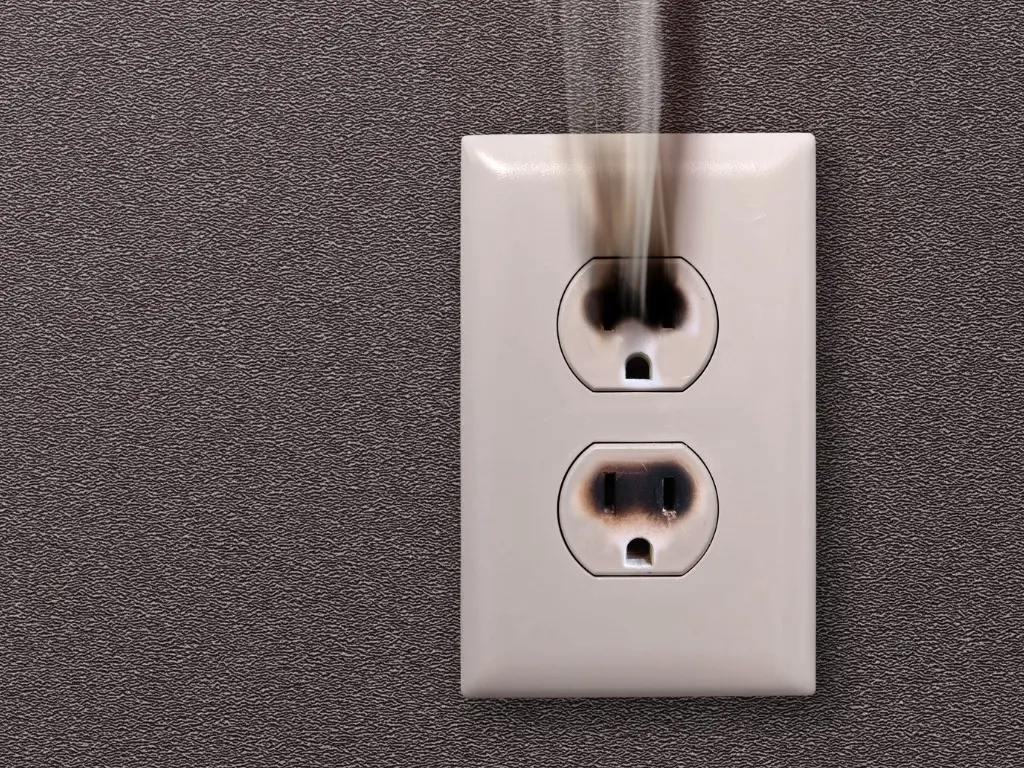Discovering that an electrical outlet in your home has sparked and smoked can be a cause for concern. While some sparks may be harmless, others can indicate a potentially dangerous problem. In this article, we will explore the reasons why outlets spark, the types of sparks that should be cause for alarm, and the potential dangers of a smoking outlet. We will also discuss the common causes of sparking and smoking outlets and provide solutions to prevent and address these issues.
Why Do Outlets Spark?
Every time you plug an appliance into an outlet, a small spark is generated. This is a normal and safe occurrence caused by the electrical current reaching across the gap between the plug and the outlet. However, there are certain types of sparking that can indicate underlying problems.
It is important to note that experiencing a brief and small spark when plugging in an appliance is generally considered normal. However, if you notice consistent sparking, additional worrisome issues, or any cause for concern, it is advised to call a professional electrician for a thorough inspection of your electrical system.
Types of Sparks to Watch Out For
While some sparks are harmless, there are four types of sparks that should not be ignored:
- Long sparks: A safe spark will come and go quickly, but a spark that lingers or fizzles is a sign of a problem.
- Big sparks: Sparks leaping out of the holes in the outlet cover are not harmless and should be cause for concern.
- Yellow or white sparks: The benign sparks you see when plugging in an appliance are usually blue. If you notice yellow or white sparks, it may indicate a problem.
- Smelly sparks: If a spark is followed by the smell of smoke or melting plastic, you may have an immediate problem and should shut off the outlet at the circuit panel.
Causes of Dangerous Sparking
There are several reasons why dangerous sparking can occur:
- Short circuiting: When an outlet's hot wire touches its neutral or ground wire, a short circuit can occur. This can lead to excessive heat, melting wire sheaths, and even fires. If you suspect a short circuit, it is important to shut off the outlet's circuit breaker and have it inspected by a licensed electrician.
- Moisture: Moisture inside an outlet can cause sparking and other electrical damage. If you suspect moisture, it is important to address the underlying issue and have the outlet inspected.
- Overloading: Plugging too many appliances and devices into a single outlet can overload the circuit and increase the risk of sparking. It is important to spread out your appliances responsibly across outlets and circuits.
- Old outlets: Over time, the electrical contact points inside outlets can wear out, leading to arcing and sparking. If you notice extreme wear, it is important to have the outlet replaced by a licensed electrician.
- Improper repairs: If you see sparking in an outlet that was installed or repaired by someone without the required licensing and certifications, it is important to have the work inspected by a licensed electrician.
Why Would an Electrical Outlet Start Smoking?
If you notice an electrical outlet smoking, it is a serious issue that requires immediate action. Smoking outlets can be a sign of a fire within the wall or other dangerous problems. If you encounter a smoking outlet, follow these steps:
- Quickly turn off the circuit and unplug the device.
- Check the wall near the outlet. If it feels hot or if smoke is pouring out, evacuate the house and call 91
- If the situation allows, use a powder-based or CO2 fire extinguisher to put out the fire. Never use water on an electrical fire.
- Do not turn the power back on until a licensed electrician has inspected the outlet and determined the cause of the issue.
Causes of Smoking Electrical Outlets
Understanding the causes of smoking electrical outlets can help prevent these issues from occurring in the first place. Common causes include:

- Wiring issues: Loose wires, damaged connections, or faulty grounds within your electrical system can cause arcing, leading to smoke and fire. If you suspect wiring issues, it is important to turn off the circuit and have a licensed electrician inspect the problem.
- Debris inside the outlet: Dust or dirt inside an outlet can cause a short circuit and potential fire hazard. Cleaning the outlet regularly can help prevent these issues. Remember to turn off the power before cleaning and allow everything to dry thoroughly before restoring power.
- Overloaded outlets: Plugging too many devices into a single circuit can overload it and generate excess heat, leading to smoldering wires, smoke, and fire. It is important to distribute your devices across multiple outlets and circuits or consult with a licensed electrician to upgrade your electrical system.
- Loose connections/corrosion: Loose connections or corrosion between a device's plug and the receptacle can cause arcing and generate heat, leading to smoke. Damaged outlets should be replaced by a licensed electrician.
Dealing with electrical issues can be dangerous, and it is always best to hire a professional electrician to address these problems. If you encounter sparking or smoking outlets, contact a licensed electrician for a thorough inspection and immediate assistance.
Remember, the safety of your home and family is of utmost importance, and addressing electrical issues promptly can help prevent fires and other hazards. Don't wait until something goes wrong – take action to ensure the safety of your electrical system today.
If you want to know other articles similar to Electrical outlet sparked and smoked: causes & solutions you can visit the Electrical safety category.


Related Articles